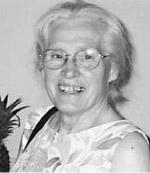PCC Board of Trustees report, December 2011
This article was originally published in December 2011
2011 Fall Member Meeting
Nearly 475 PCC members met at St. Demetrios Hall on October 25 to celebrate the first annual Food Day. Our meeting was a registered Food Day event — one of more than 100 in the Seattle area.
Through the program, “Every Day is Food Day at PCC,” we talked about the objectives of Food Day and how PCC is striving to promote safe, healthy foods; support sustainable farms; expand access to food; protect the environment; curb junk-food marketing to kids; and support fair conditions for food and farm workers.
Of course, it all starts with promoting safe and healthy foods and our meeting began with a delicious seasonal, local meal prepared by a team of PCC chefs. The menu and recipes are available on our website.
In a rare treat for our members, and to highlight our support for local food producers, we were joined by the farmers, ranchers and producers who brought us our meal ingredients — Pure Country Pork, Small Planet Organic Tofu, Nash’s Organics, Full Circle Farms, Rent’s Due Ranch, Oxbow Farm, River Valley Organics, Scott Leach Orchards, Pure Èire Dairy, Fidalgo Bay Coffees, Choice Teas and Organic Valley Farms. We also invited a number of our other local vendors to celebrate Food Day with us.
PCC member Anna Nordstrom noted, “This year it was extra special to sit with three of the farmers who grew parts of our meal — Luke and Adam from Oxbow, and Andrew from Full Circle Farm! Thank you, PCC, for having such high standards for our food.”
We heard a report from PCC Farmland Trust executive director Rebecca Sadinsky on the history of the organization, and some of the milestones reached over its 10 years. The first farmland saved by the trust in 1999 still is farmed today by Nash Huber in Sequim.
Andrew Stout of Full Circle Farm in Carnation farms on land preserved in 2005 by the trust. Most recently, in 2011, the trust saved the Williams Hudson Bay Farm in Walla Walla. Huber, Stout and Hudson Bay’s Tom and Ray Williams all spoke to members about the importance of the work of the trust in preserving the rich farmland in our state and the value of organic farming.
We were reminded of PCC’s efforts to help alleviate hunger through our work with area food banks, and our advocacy work to influence policies that affect food security. To protect the environment and animals, PCC promotes, verifies and has earned legitimate certifications awarded by independent third parties.
Our spotlight on childhood nutrition shines through in the PCC Healthy Kids initiative, including the Free Fruit for Kids and Kid Picks programs, among other efforts.
To promote fair labor for workers, PCC labor practices focus on fairness, opportunities and respect for the many people who make our business possible. We offer fairly traded products and strive to educate the public on fair labor issues through our publications.
The evening ended with a question-and-answer session, when the farmers and our merchandisers spoke to some often-asked questions about products and standards.
Washington state and West Coast Food Day organizer, Deborah Gardener, also spoke to our members and noted, “Food Day’s six principles all really connect to the three core topics of the food movement: nutrition, food justice and sustainability. That’s what Food Day is all about: events all over the country like this one, so that suddenly as a public we get that these things are related. I can see from PCC’s Food Day event that this is something to which you’re already dedicated, that you’re thinking about where we as food advocates want to be by Food Day 2012, and what we need to do to get there.”
The board thanks everyone who contributed to the success of this wonderful evening with special gratitude to the producers who took the time — some straight from the farm — to join us! Please visit the fall meeting page on our website for a link to video messages from some of our producers.
PCC founding member passes away

Soon after we published “Remembering the early days of PCC” (November), we learned one of the founding members of PCC, Elaine Davenport Stannard, had passed away at age 86.
Elaine also was a former elementary school teacher in Renton, a founding member of Seattle Tilth, the first director of the Radio Talking Book for the Blind, and the founding director of the Well Mind Clinic. Her daughter, Susie Moore, wrote in with this recollection of PCC history:
PCC was started in the basement of the May Valley Co-op founder, John Affolter. He operated it like a “food conspiracy” with members putting in orders to make up bulk purchases from the few and far-between organic growers in California for dried fruits, rice and legumes.
My recollection is that the Seventh Day Adventists were the source for whole wheat, rye and oat grains, flours and breads. John paid us in dried fruit when we volunteered to break down and package the bulk orders for individual members to pick up out of his car port. People came from Seattle and around the area to get this high-quality food.
The co-op eventually opened a storefront in the Madrona district due to the growing number of Seattle members, specifically individuals who became the founders of the Little Bread Company and Soup and Salad collectives, and later Cooperating Community Grains regional whole grains warehouse.
Thank you, Elaine. We will miss you.
